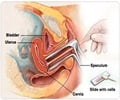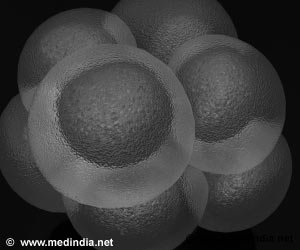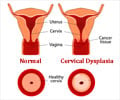Health expert says that diagnostic tests for human papilloma virus (HPV) can cut by a third the incidence of cervical cancer in women worldwide.

"The deaths from this preventable disease will rise unless awareness in women increases and elevates the need for a more robust screening paradigm for cervical cancer," added Brar whose laboratory is focused on advanced testing techniques and expertise in cardiology, oncology, reproductive disorders, and endocrinology.
Brar said she was alarmed at the level of ignorance about cervical cancer during her interactions at a camp organised by Core Diagnostics in Punjab in September. "Almost one third of cervical cancer can be prevented if HPV testing is used as primary screening test instead of the cytology test." According to data available at the conference, every third oral cancer patient in the world is from India. While in males, cancers of the oral cavity and lung are the most common causes of cancer incidence and death, in females cervical and breast cancer are the main causes of cancer related illnesses and death.
Experts like Brar said while the government has become proactive, a cervical screening programme was initiated by the Indian Council for Medical Research (ICMR) across various cities in the country. The motive was to prevent cases of cervical cancer by detecting and treating abnormal changes in the cells of the cervix, which can be the precursors of cancer. The four-day sponsored by Core Diagnostics is being hosted by the Association of Radio Oncologists of India (AROI), the Indian Association of Surgical Oncology (IASO), the Indian Society of Medical and Pediatric Oncology (ISMPO), the Indian Society of Oncology (ISO), and the Oncology Forum.
Over 250 expert speakers and some 5,000 delegates are attending the conference which is expected to act as a catalyst for further research, treatment and dissemination of knowledge in the field of cancer.
Source-IANS















